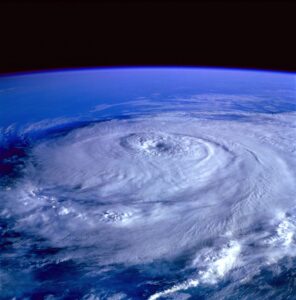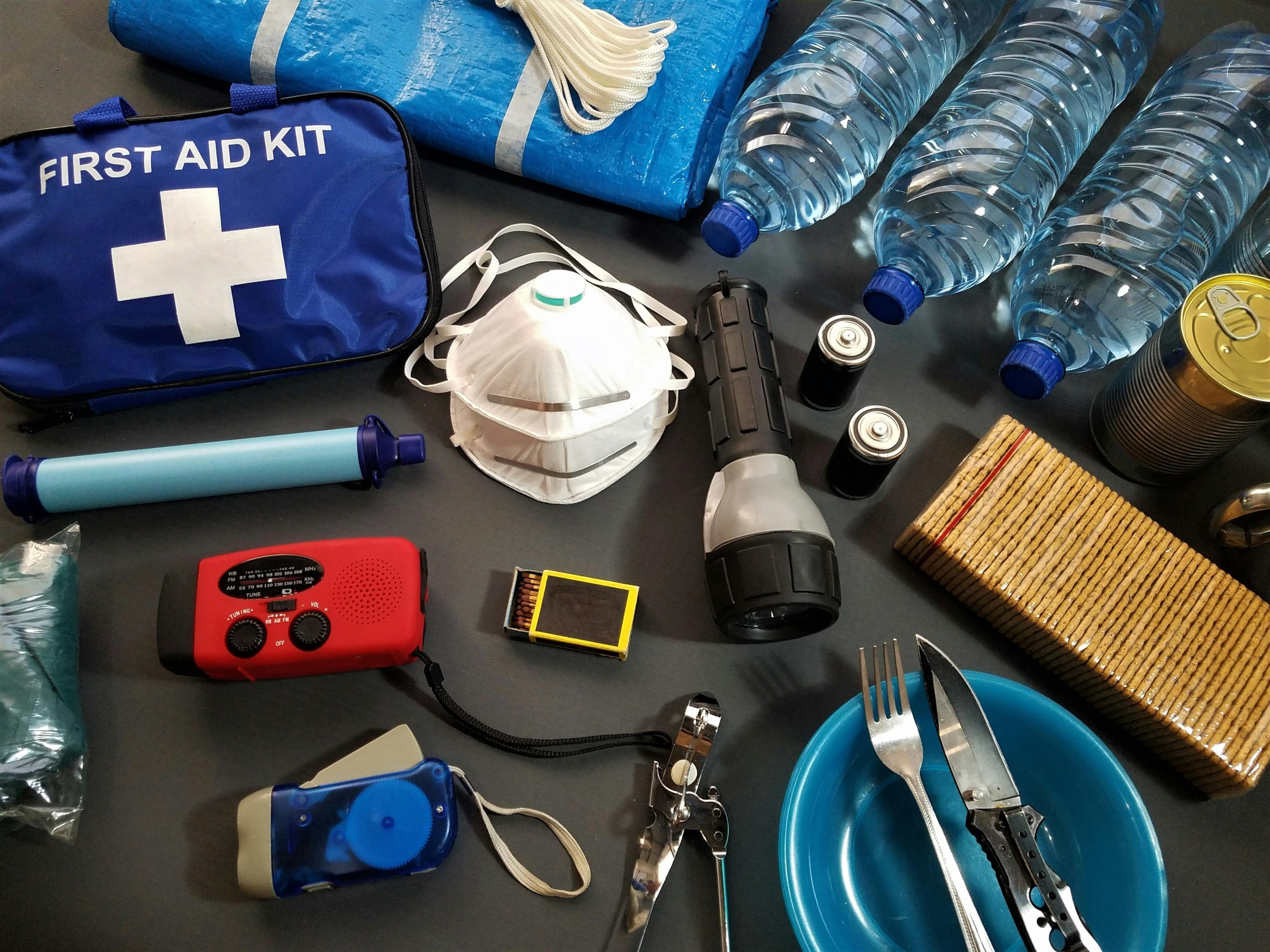Mover Dallas: Staying Safe in DFW and How to Prepare for Hurricane Season
Get Your Free Moving Estimate

Hurricane season is an annual reality for many residents along the Gulf Coast, but it also affects those living further inland, like in the Dallas area and the Dallas-Fort Worth (DFW) area. While DFW may not experience the full brunt of hurricanes, the region is still susceptible to severe weather, including heavy rain, flooding, and strong winds. Understanding how to prepare for hurricane season is crucial to protecting your home, family, and belongings.
Understanding the Risks
Why DFW Residents Should Pay Attention to Hurricane Season
You might wonder why hurricane season matters in a place as far inland as the Dallas-Fort Worth area. The truth is, while the area doesn’t typically face the direct impact of hurricanes, the aftermath can still be severe. Hurricanes that make landfall on the Texas Gulf Coast can bring significant rain, wind, and even tornadoes to DFW. This means that preparation isn’t just for those on the coast—it’s essential for anyone living in Texas.
Tradeoffs: Preparing Without Panic
When preparing for hurricane season, it’s important to strike a balance between readiness and over-preparation. Stockpiling supplies is wise, but hoarding can lead to unnecessary stress and shortages for others. Being informed and planning allows you to take the necessary precautions without falling into a state of panic.

Steps to Prepare Your Home
1. Secure Your Property
Start by assessing your home’s exterior. Are there loose shingles, siding, or other elements that could be ripped away by strong winds? Ensuring your home is in good repair before hurricane season can minimize potential damage.
- Roof and Gutters: Check for any weak spots on your roof and clean out gutters to prevent water buildup. Reinforcing your roof can be a good investment if you live in an area prone to severe weather.
- Windows and Doors: Install storm shutters or plywood on windows and doors to protect against flying debris. If storm shutters aren’t an option, clear any loose items from your yard that could become projectiles in high winds.
- Trees and Landscaping: Trim trees and remove dead branches that could fall on your house during a storm. A well-maintained landscape can reduce the risk of damage.
Hiring a full-service moving company can provide comprehensive support, including professional packing services and assistance, ensuring a smooth and efficient transition during such preparations. These services offer convenience and stress relief by having trained personnel safely pack various types of belongings, from fragile items to electronics.
2. Emergency Supplies
A well-stocked emergency kit is a must. Include items such as:
- Water and Non-Perishable Food: At least a three-day supply for each person.
- First Aid Kit: Include any necessary medications.
- Flashlights and Batteries: Power outages are common, so have plenty of batteries on hand.
- Important Documents: Keep copies of insurance policies, identification, and bank account information in a waterproof container.
Tradeoff: Stocking Up vs. Space Constraints
While it’s important to have emergency supplies, consider the space you have available. If you’re living in a smaller home or apartment, you might need to prioritize what’s truly essential. Focus on items that are critical for survival, and store them in an accessible but out-of-the-way place.
Preparing for Potential Flooding
1. Know Your Flood Risk
DFW has areas that are more prone to flooding, particularly after heavy rain. The first step in preparing for hurricane season is understanding your flood risk. FEMA’s Flood Map Service Center is a useful resource for checking whether your home is in a flood zone.
2. Flood Insurance
If you live in a flood-prone area, consider getting flood insurance. Standard homeowner’s insurance typically doesn’t cover flood damage, so this is a crucial step in protecting your property.
3. Protecting Your Home
If flooding is a possibility, take the following steps:
- Elevate Utilities: If possible, elevate electrical appliances, water heaters, and HVAC systems off the ground.
- Sump Pump: Installing a sump pump can help prevent water from accumulating in your basement.
- Sandbags: Have sandbags ready to block water from entering through doors and low windows.
Consider utilizing storage services to safeguard your belongings during flooding.
Tradeoff: Cost vs. Peace of Mind
Investing in flood protection can be costly, but it provides peace of mind knowing that your home and belongings are protected. Weigh the cost of these preventive measures against the potential loss in the event of a flood.

Emergency Plans and Evacuation in the Dallas Area
1. Create a Family Emergency Plan
Discuss with your family what to do in case of a hurricane. This plan should include:
- Communication: How will you stay in touch if separated?
- Evacuation Routes: Know the best routes out of the area and have a designated meeting place.
- Shelter Plans: Decide where you’ll go if you need to evacuate—whether it’s a relative’s house or a local shelter.
Proper planning ensures a hassle-free moving experience during evacuations, even in challenging circumstances.
2. Pets and Livestock
Don’t forget about your pets and livestock. Make sure you have a plan for their care, including food, water, and any medications they might need.
Tradeoff: Staying vs. Evacuating
Deciding whether to stay or evacuate during a hurricane can be challenging. Staying might seem easier, especially if the storm isn’t expected to hit directly, but if there’s a significant risk of flooding or extended power outages, evacuation could be the safer choice.
Post-Storm Considerations for Dallas Movers
1. Assessing Damage
After the storm passes, carefully assess your home for damage. Document everything with photos and contact your insurance company as soon as possible to start the claims process.
2. Safety First
Be cautious when returning to your home after a storm. Floodwaters can hide hazards like downed power lines or sharp debris. If your home has sustained structural damage, wait for a professional to assess the situation before re-entering. Hiring professional movers can also ensure a safe and efficient post-storm relocation, including the logistics of using a moving truck to transport your belongings safely.
Tradeoff: Immediate Repairs vs. Waiting
While it might be tempting to start repairs immediately, rushing can sometimes lead to further damage. If you’re not experienced in home repair, it’s often better to wait for a professional to assess and fix the damage to ensure it’s done correctly.
Moving with Professional Movers During Hurricane Season
1. Timing Your Move
If you’re planning to move during hurricane season, timing is everything. Try to schedule your move during a period of calm weather, and keep an eye on the forecast as your moving day approaches.
2. Choosing a Reliable Moving Service
Look for Dallas movers that have experience with moves during hurricane season. A reputable local moving company will offer tailored services to meet your specific needs. Additionally, consider their long distance moving services if you are relocating beyond the metropolitan area. A knowledgeable mover in Dallas will understand the unique challenges of moving in severe weather and can help you plan accordingly. Additionally, many Dallas movers offer a free moving estimate, making it easier to budget for your move. Moving companies provide unique offerings and accessibility for both local and long-distance moves, ensuring you have the support you need.
Tradeoff: Moving in Summer vs. Delaying
Moving in the summer months can be convenient due to school breaks, but it also means contending with the potential for hurricanes. Delaying your move until after hurricane season might be a safer option, but it could also be less convenient. Consider hiring local movers who know the area well and can provide expert advice on the best times to move, ensuring a smooth transition for your family.
Resources and Additional Information for a Hassle-Free Moving Experience
To help you prepare further, here are some additional resources:
- FEMA Flood Map Service Center: Check your flood risk.
- National Hurricane Center: Get updates and information on hurricanes.
- Texas Department of Insurance: Learn about insurance options for hurricane and flood protection.
- American Red Cross: Hurricane preparedness tips.
Professional moving services are crucial for ensuring a smooth and stress-free transition during hurricane season.
Final Thoughts
Hurricane season in DFW requires careful planning and preparation. By taking the time to secure your home, stock up on essential supplies, and create an emergency plan, you can protect your family and property from the unpredictable weather that hurricane season brings.
If you’re planning a move during hurricane season, contact a Mustang Moving professional for a free estimate. Our team of experts is equipped to help you navigate the challenges of moving in DFW’s unique climate. Whether you’re staying put or heading to a new home, our Dallas moving company is here to support you every step of the way.
